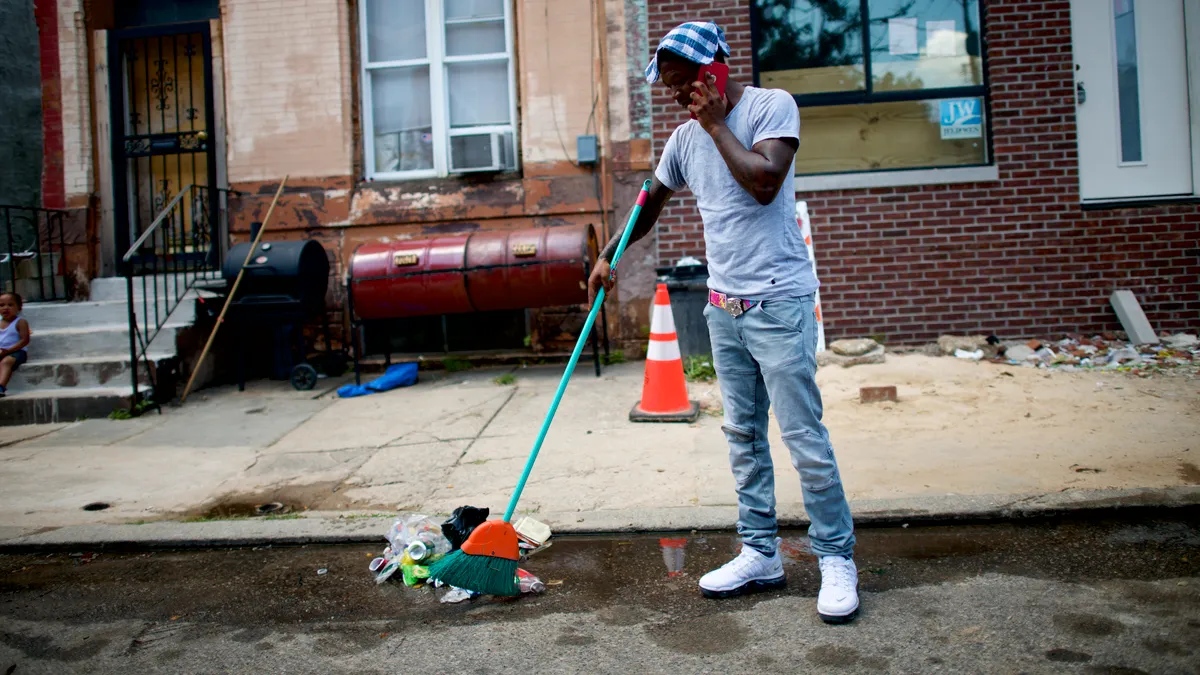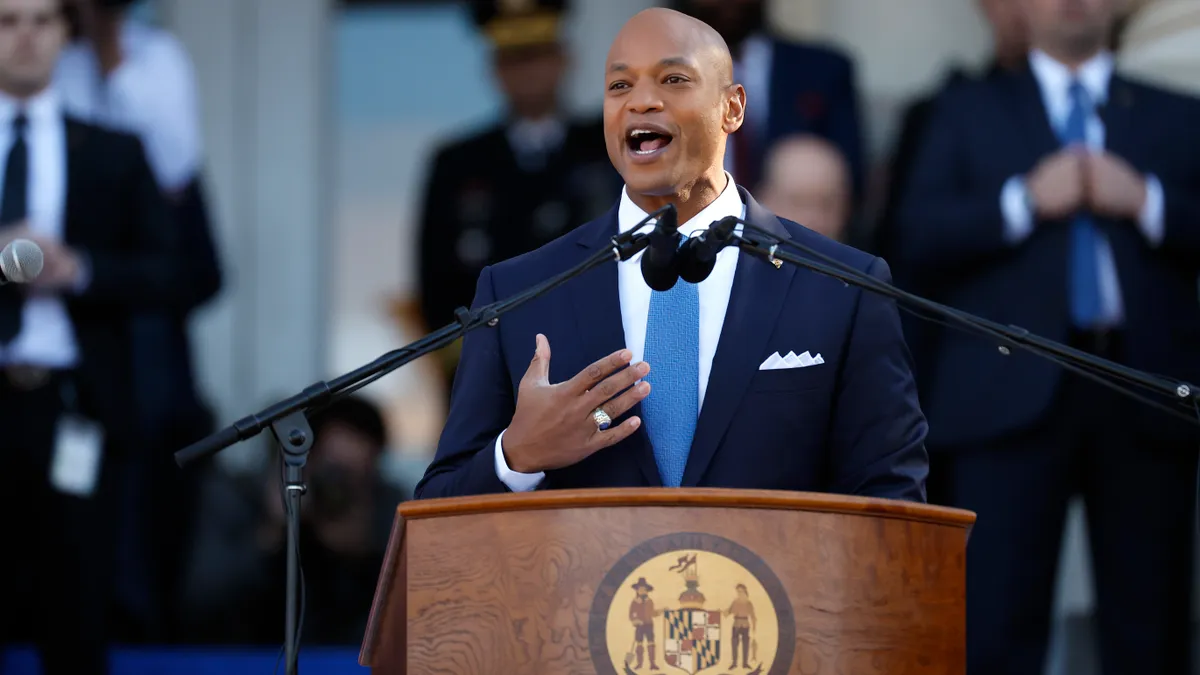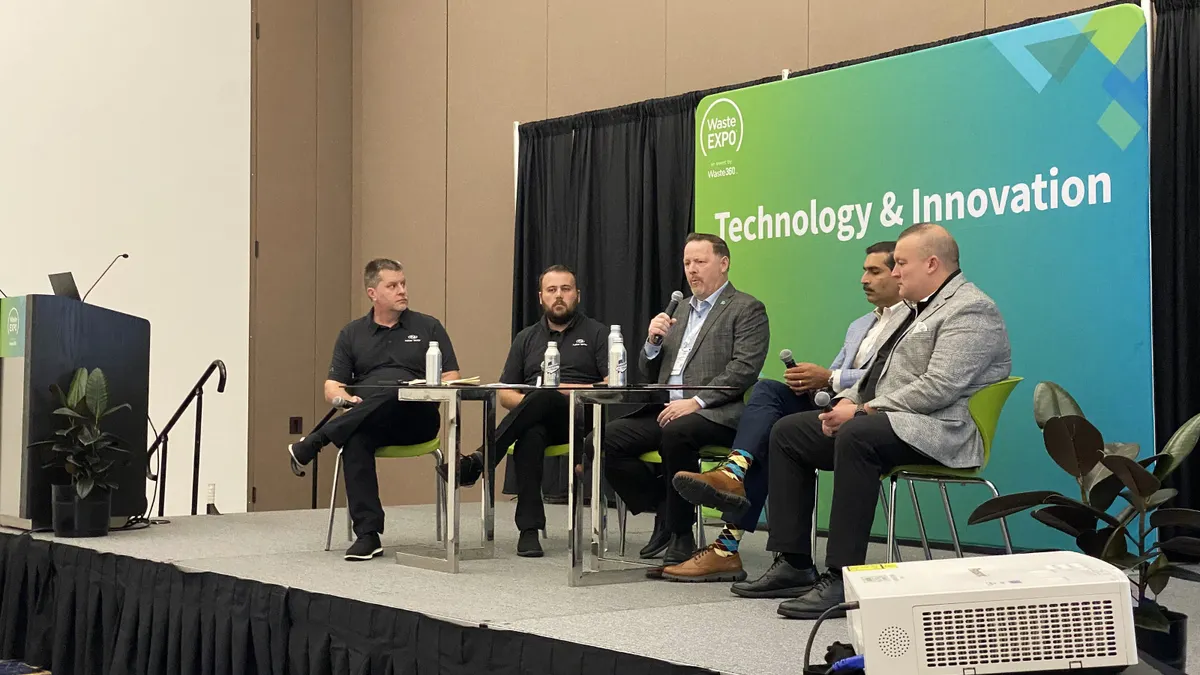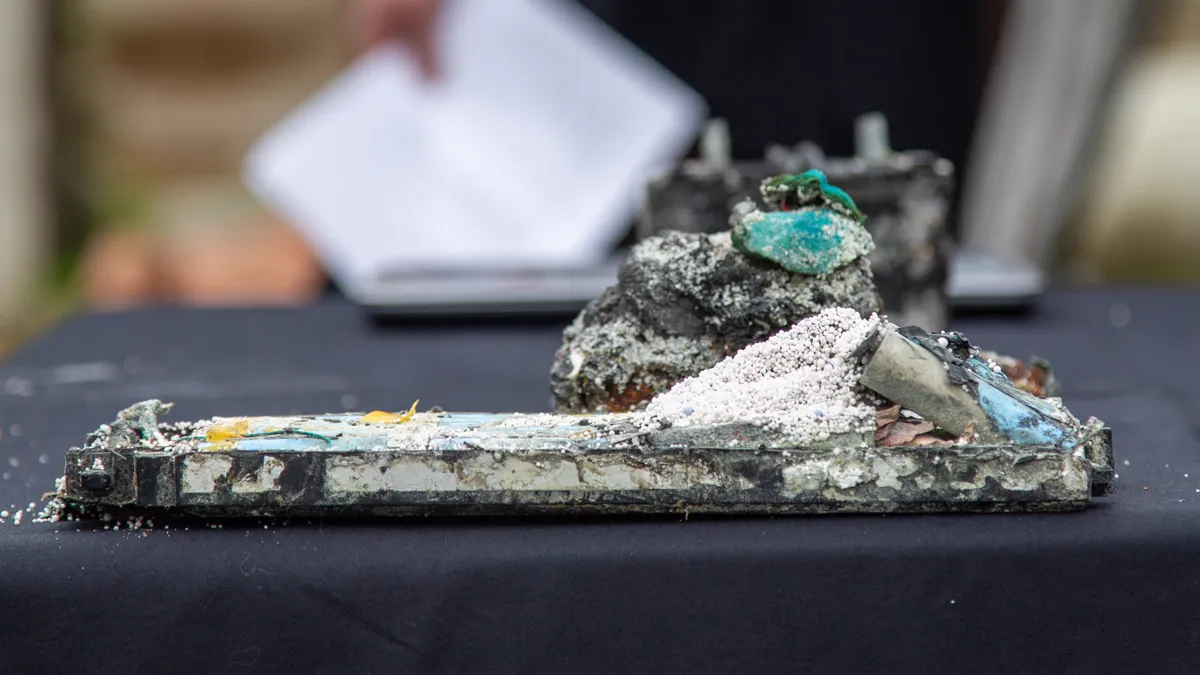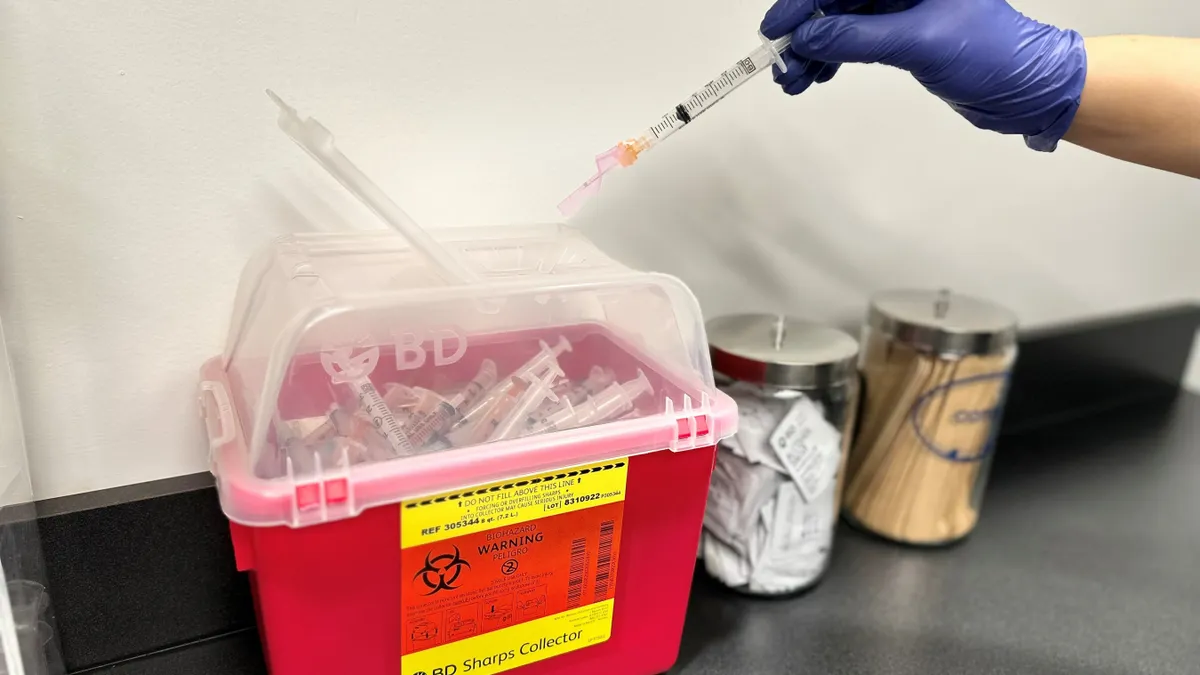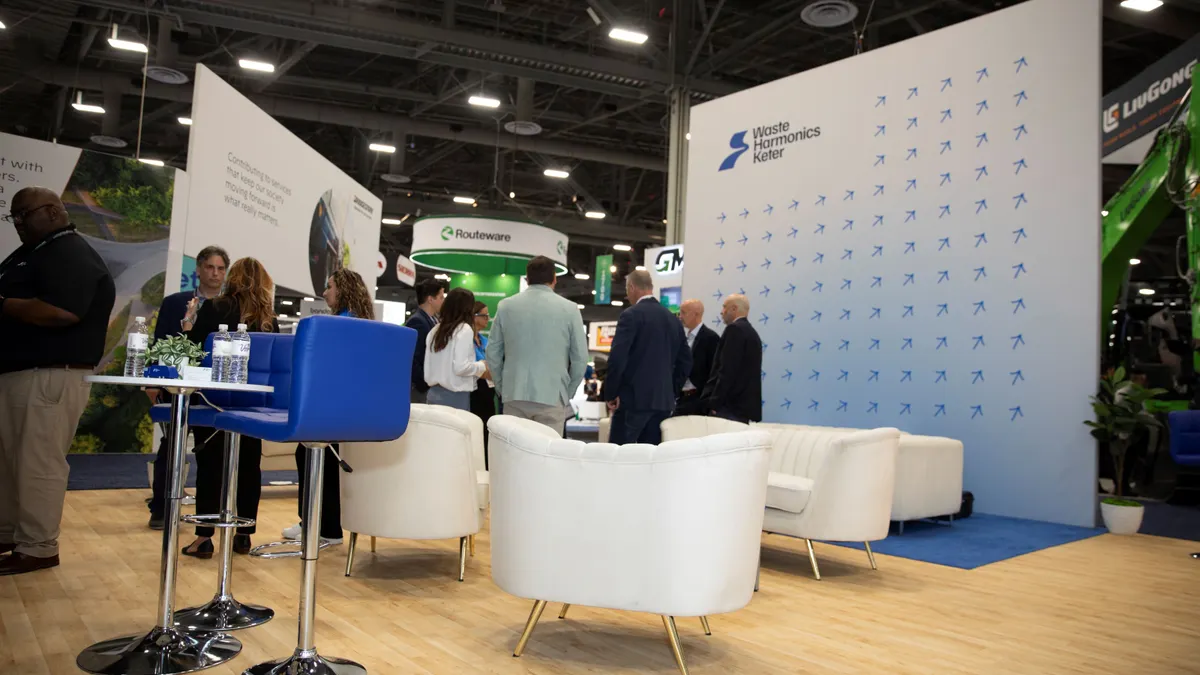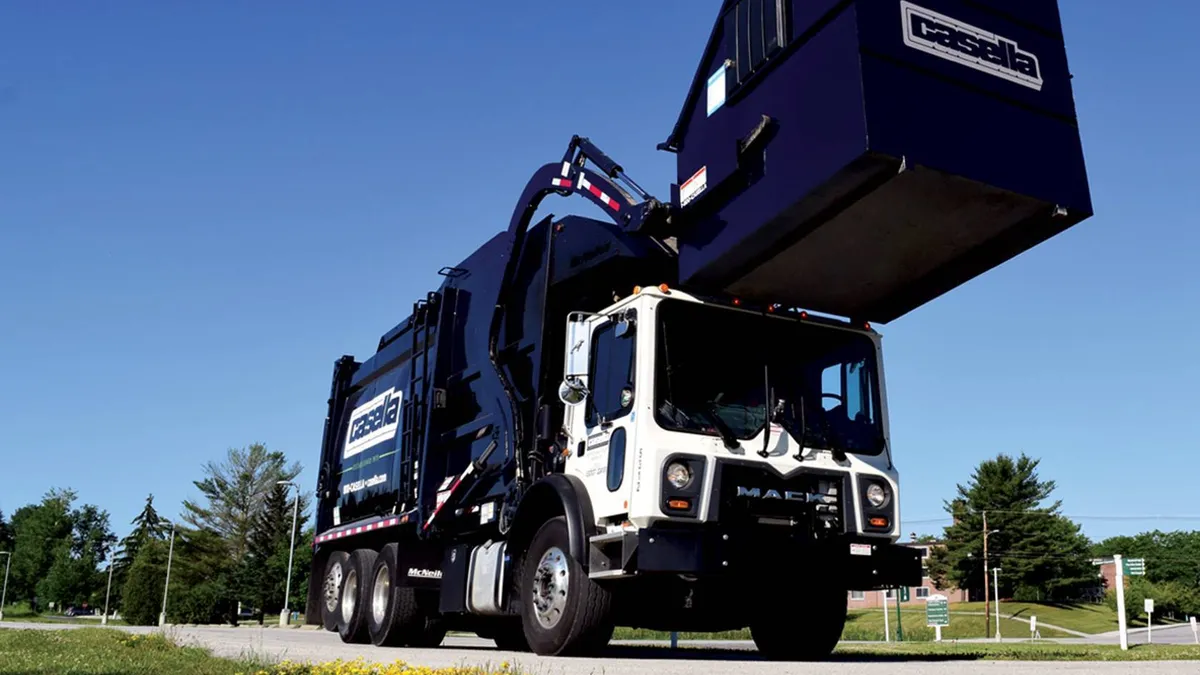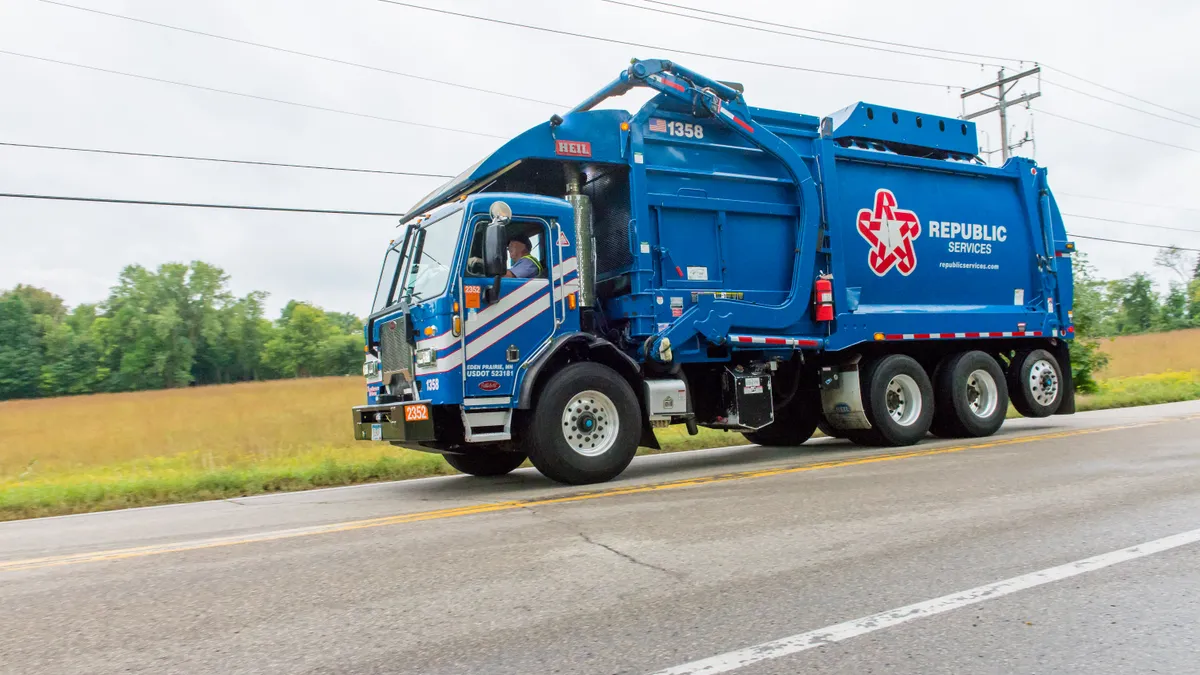The nickname “Filthadelphia” has hung like a dark cloud over Philadelphia since the 1970s, when poverty and drug addiction struggles sparked a citywide surge in litter. Despite the efforts of several mayoral administrations to turn conditions around, countless bottles, chip bags and cigarette butts are still scattered along the city’s streets today — and frustrated residents are reaching their boiling point.
Attention to Philadelphia’s recent litter challenges has grown since May 2020, when Mayor Jim Kenney cut the city’s Zero Waste and Litter Cabinet due to pandemic-related budget pressures. This led to a rise in chronic trash collection issues and a decline in working conditions, said Terrill Haigler, a former collection worker for the Philadelphia Streets Department who quit his job in February after just 14 months.
“There’s no strategic plan” to ensure that collection worker injury, outdated infrastructure or even annual holidays won’t result in short-staffed routes and collection delays, Haigler said. Now, as the Streets Department struggles to keep the city’s trash under control, Haigler and other residents are taking matters into their own hands.
Today, Haigler is known around town as “Ya Fav Trashman,” a community activist and social media influencer who shares protest videos, local announcements and cleanup tips with nearly 28,000 Instagram followers. His posts led him to connect with South Philly resident Morgan Berman, founder and board chair of app platform MilkCrate, who was seeking support for a new citizen-facing litter cleanup app she’d been developing.
“Two-and-a-half years ago, I was stumbling over trash on New Year's Day and thought to myself, you know, I help organizations motivate behavior change with mobile apps, why can't I figure out how to change this behavior with a mobile app?” said Berman.
Her app had undergone many iterations and a name change before Haigler entered the picture. After months of collaboration and refinement, Glitter went live in July. The premise of Glitter is simple: Philadelphia residents can download the app on Android or iOS and subscribe to pay for cleaning in their area report litter, apply to be a paid cleaner, or learn more about local cleanup events.
Berman said she's received “hundreds of applicants” for the paid cleaner positions, and she has worked with a friend to build a weighted assessment system that evaluates criteria including an applicant's location, availability and income level. Berman said she will prioritize traditionally underemployed or lower-income applicants.
The company assigns paid cleaners within their respective neighborhoods to collect and bag any reported litter and log it in the Glitter system; they receive a paycheck at the end of the week. The bags are marked with Glitter-branded stickers and left curbside for Haigler to collect using a private collection truck purchased with a grant from the Knight Foundation.
Each block costs roughly $140 per month to clean through the app, with most of that money going to payments for the cleaners. Supporting the program are a variety of private, corporate and “block” sponsorships. Glitter has five corporate sponsors to date — including Comcast, Shoprite and Arts&Crafts Holdings — as well as notable private sponsors such as former Mayor Michael Nutter. So far, an estimated two dozen residents have also subscribed to pay for weekly block cleanings.
Sponsors can select the neighborhoods where they’d like to fund a cleanup, or they can “donate” the cleanups to areas that need it most. One wealthy sponsor, for example, donated $5,000 for cleanups in the northeast neighborhood of Kensington, an area that disproportionately struggles with poverty and high crime rates.
Glitter is currently in a limited pilot phase that will begin testing residents’ willingness to support cleanup initiatives in a small area of South Philly. The team hopes to reach all corners of the city as its app expands, yet its success hinges, in part, on its ability to get support from city leadership.
Funding fight
Before Philadelphia scrapped its Zero Waste and Litter Cabinet, it stood as a model for cities around the country to reference when designing their own litter cleanup programs, said former cabinet director Nic Esposito.
“I talked to cities all over the country, and they know the Philly model. We built something really powerful with the cabinet,” said Esposito, who now serves as the head of cities at data-driven litter tracking platform Litterati.
Esposito pointed to projects like the cabinet’s annual litter index, which tracked Philadelphia’s progress toward a goal of becoming litter-free by 2035. The cabinet’s final litter index, in 2019, found nearly 49% of the 36,000 blocks surveyed had moderate to severe litter conditions, with cardboard, takeout packages and snack bags among the most commonly reported types of litter. That index has stood idle since the cabinet was eliminated, which left illegal dumping “spiraling out of control,” he wrote in an April opinion piece for The Philadelphia Inquirer.
The Streets Department has brushed off these concerns, citing a five-year, $62 million street sweeping program and other cleaning efforts. The department declined an interview request, but a Streets Department spokesperson noted via email the city’s Block Captain program, which organizes “several hundred cleanups each year;” the Philly Spring Cleanup, which brought together “thousands of volunteers” to clean their neighborhoods; the distribution of cleanup equipment and free tipping access at city facilities.
Esposito and Berman both said these initiatives are not as effective as they may seem, primarily due to a lack of technology adoption within the department, which they say leads to a lack of accountability. Berman joined the Block Captain program, and she said the system runs without a robust digital communication system, making it virtually impossible to show proven cleanup results. Esposito also said many of the block captains are “aging out” of the program, but the only way to sign up as a new captain is through a mailed-in form.
Meanwhile, Streets Commissioner Carlton Williams has touted his department's new PickupPHL web mapping tool to waste industry professionals. The tool allows residents to track the status of trash collections at a neighborhood level, but it doesn't offer any insight into when delayed collections may actually occur.
“Glitter is literally just a better version of what they already do, as in, it has a real accountability system and the ability to communicate with people,” Berman said, yet she and Haigler say they have struggled to secure any government funding to support it.
Berman said the Knight Foundation offered additional funding to significantly help cover the costs of operations if Glitter were to receive a contract from the city. When it came time to discuss executing a contract that had the support of city council members, Berman said Williams did not show up to a scheduled June meeting. She said the department ultimately chose not to partner with them on funding, which caused Glitter to lose out on the Knight Foundation's offer.
A Streets Department spokesperson said MilkCrate has not yet proven the citywide efficacy of Glitter or shown the department a preview of the app or its data, and “we are not going to pay for an unproven pilot program.” The spokesperson said the company would need to “bid this type of service through the city’s RFP process” to be considered for any financial support, citing prior waste and recycling pilot examples, such as Bigbelly and Recyclebank, that later were scaled up.
The department declined to share any further comment regarding the procurement process or how that relates to council budget requests.
Berman said MilkCrate has been talking with department officials for years, including providing detailed reviews of various iterations of the app, and she’s tired of hearing excuses from city officials.
“It's a disgraceful system that I'm still only scratching the surface of, but it clearly is failing us as a city,” Berman said via email. “I don't claim to have many of the answers, but I am confident that having leaders who lie to the press, and have nothing to show after tens of millions of dollars spent, are not fit for the job.”
Are paid cleaners the solution?
Randy Hartmann, Keep America Beautiful's senior director of affiliate operations, recently moved to Philadelphia and said his neighborhood is “probably one of the most littered areas I’ve ever lived in." At the same time, he noted that Philadelphia is not alone in its struggles.
Nearly 50 billion pieces of litter are estimated to exist along U.S. roadways and waterways today, meaning each U.S. resident would need to pick up 152 pieces of litter to collect it all, according to the Keep America Beautiful 2020 National Litter Study. Like those in Philadelphia, governments and community groups from coast to coast have poured countless resources into neighborhood cleanups that largely depend on volunteer support.
The rise of social media has even eliminated the “taboo” of calling out brands for their litter, Hartmann said, pushing corporations to prioritize their commitments to responsible packaging and disposal.
“I think what’s fundamentally changed is, we’re seeing a movement away from ‘let’s keep picking it up’ to ‘how can we prevent this?’" Hartmann said. But with such stark evidence of the ongoing litter issue, some are now wondering if there is a ceiling to volunteer-based litter cleanup efforts.
“The ceiling is when you’ve gone to the same spot three times in a row and still have to clean it up. It’s frustrating,” said Esposito. This is something he sees often through Litterati, which enables citizens to collect litter and log it on an artificial intelligence-enabled dashboard.
Litterati does not offer its participants any monetary incentives, and Esposito is hesitant to believe paid cleanup platforms are the silver bullet to this problem. "It’s like paying people in the suburbs to mow their own lawn," he said. Still, he agrees that more needs to be done to incentivize community engagement.
“As our job market and our economic system evolves into whatever it's going to be in the future, you're going to have the need for people to have different types of work,” he said. “So to use technology to pay people to clean up who are underemployed, who could use that extra money — just like you're seeing with Uber— there is something there.”
San Francisco-based Rubbish is another citizen-facing app that’s leveraging innovative technology to tackle litter. The company's model centers on the rubbish beam, a Bluetooth-enabled trash grabber that allows people to use their mobile devices to automatically photograph and categorize each piece of litter they collect.
“We want to show to you and prove to you that your efforts are actually making a difference. And that’s the reason to always go back to the data,” said Rubbish CEO Emin Israfil.
While the beams are a creative way to collect this data, they’ve traditionally cost around $100 to purchase — and outside of providing the feeling of a job well done, Rubbish does not incentivize users to pick up trash.
“We actually found payment to be a poor motivator for people,” Israfil said. “The people who wanted to come out and clean, they weren't necessarily even that interested in being paid for it, they wanted to go out and just help the community.”
Regardless of whether it uses a paid or a volunteer cleanup model, technology will be the key in ensuring cities can prevent litter, Hartmann said, noting that tech offerings are “dramatically” improving across the industry.
While the efficacy of Glitter’s paid cleaner pilot is still being assessed, Berman agrees that innovation and collaboration are necessary to end the “Filthadelphia” reputation once and for all.


